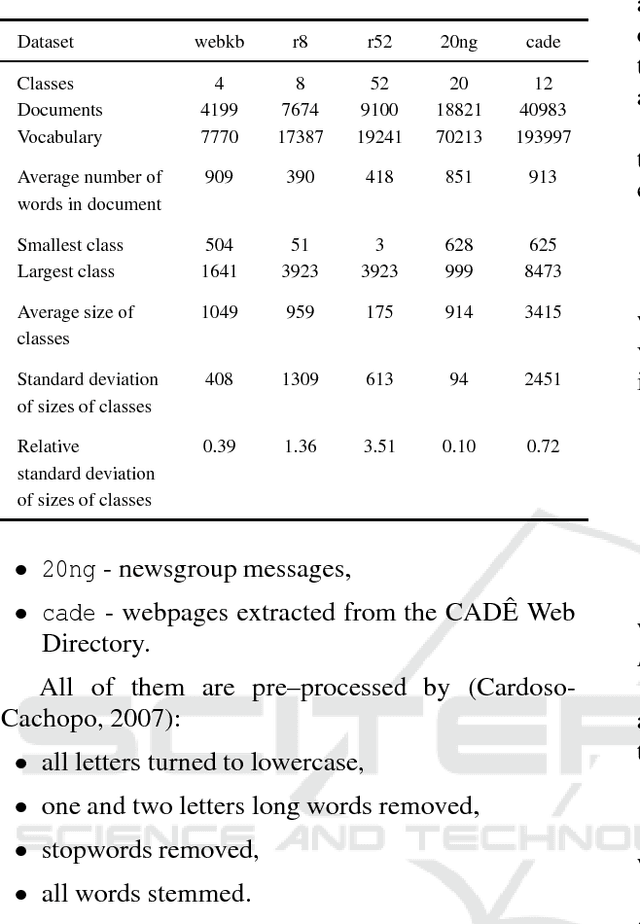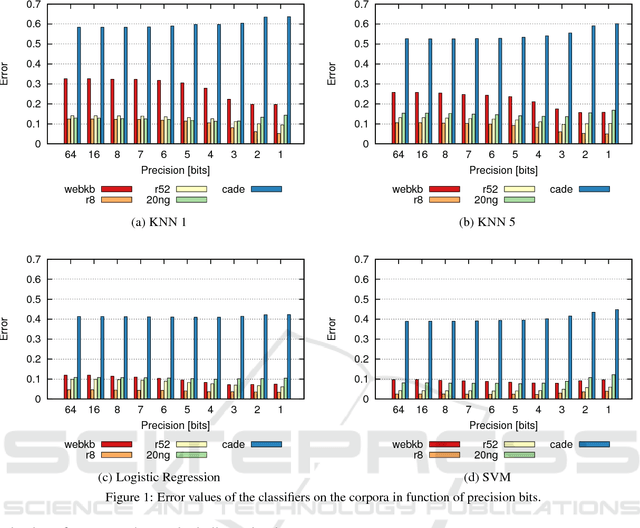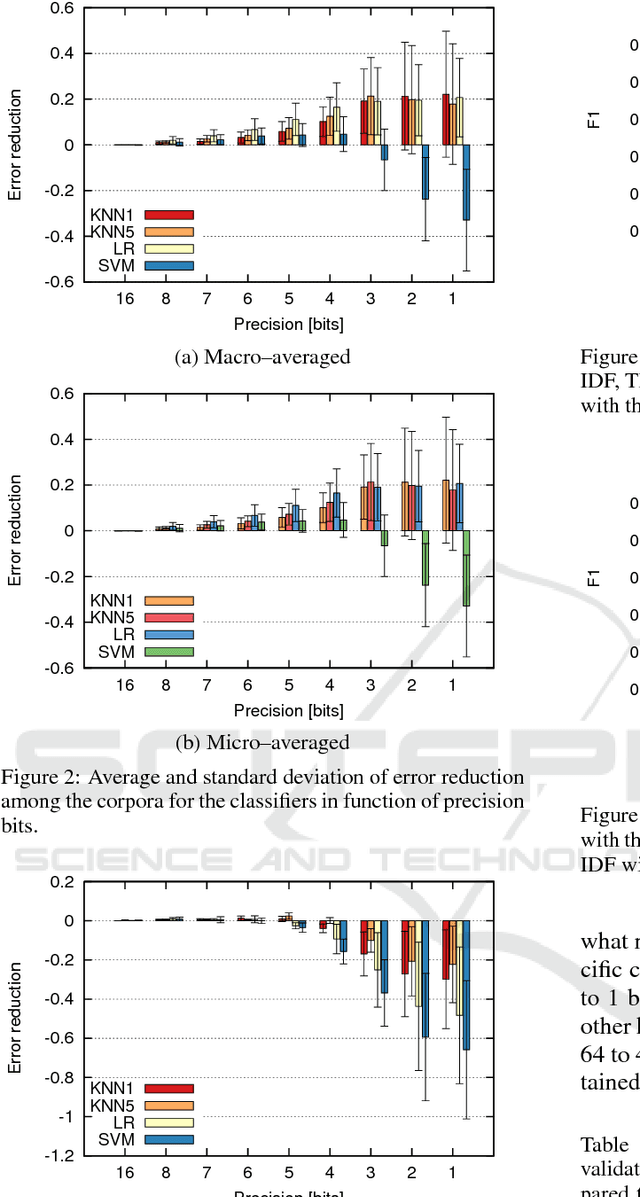Improving text classification with vectors of reduced precision
Paper and Code
Jun 20, 2017



This paper presents the analysis of the impact of a floating-point number precision reduction on the quality of text classification. The precision reduction of the vectors representing the data (e.g. TF-IDF representation in our case) allows for a decrease of computing time and memory footprint on dedicated hardware platforms. The impact of precision reduction on the classification quality was performed on 5 corpora, using 4 different classifiers. Also, dimensionality reduction was taken into account. Results indicate that the precision reduction improves classification accuracy for most cases (up to 25% of error reduction). In general, the reduction from 64 to 4 bits gives the best scores and ensures that the results will not be worse than with the full floating-point representation.
 Add to Chrome
Add to Chrome Add to Firefox
Add to Firefox Add to Edge
Add to Edge